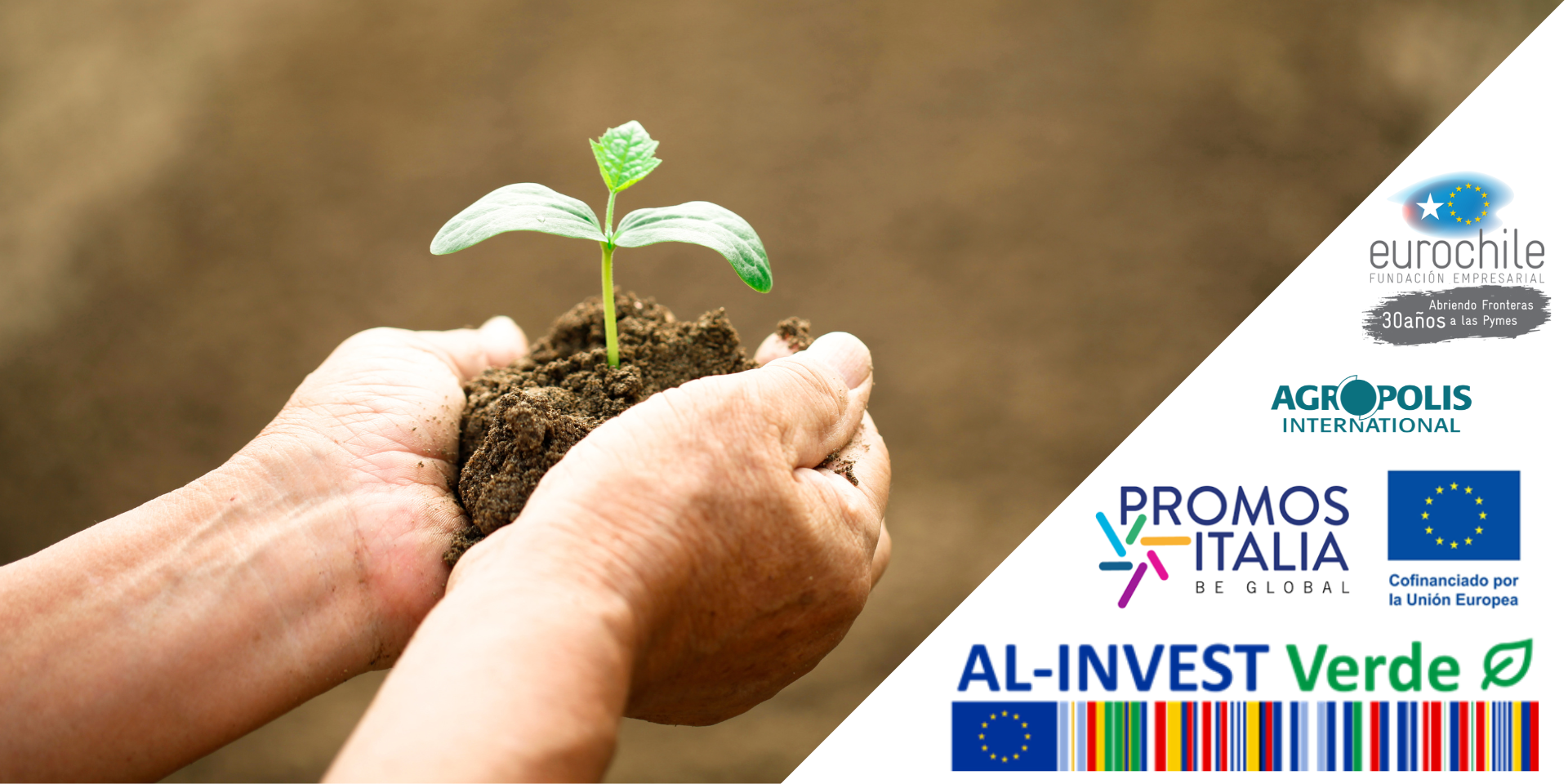Eurochile Foundation holds AL-INVEST Verde Frutícola workshops in the regions of Biobío and Los Lagos
Eurochile Business Foundation, in collaboration with its European partners Promos from Italy and Agropolis International from France, presented the AL-INVEST Verde Frutícola project last May in the commune of Lolol, O’Higgins region. This initiative aims to help small and medium-sized enterprises to adopt sustainable and circular practices in their agri-food systems.
In this context, on 25 and 26 May, workshops were held in the regions of Biobío and Los Lagos to provide details and invite producers to participate in the project, called “Chilean-European Alliance for the green transition in MSMEs in the Chilean fruit sector and their Business Organisations”. This project is a step forward in the creation of international alliances to promote sustainability and environmental care in the agri-food sector.
During the days of activities, Rodrigo Silva Muñoz, project manager and Ivonne Palma, director of the Sustainability and Circular Economy Area, both representatives of Eurochile Business Foundation, together with the European experts, Iciar Pávez and Sabrina Deforge-Lagier, highlighted the importance of the circular economy as a tool for the sustainable management of natural resources in the fruit sector.
Currently, the Chilean production system is highly intensive in the use of agrochemicals, due to the use of pesticides and fertilisers, which affects both the environment and the health of consumers. For this reason, European markets have defined norms in their export systems, where agri-food producers must comply with certain environmental and sustainable standards in order to be able to trade their products.
Rodrigo Silva, project manager of the Sustainability and Circular Economy Area, points out that, “The challenge for Chilean fruit growing is to respond to this and move towards a more sustainable agriculture, so this will allow better use of resources and help MSMEs to implement a more circular agriculture, and thus comply with the regulations for exporting to European markets”.
From the European perspective, the French experts opened up a world of opportunities for the attendees, presenting all the options for knowledge exchange and success stories in Europe where circular economy practices in production and waste management were implemented in the fruit sector. These examples showed how these practices are not only beneficial for the environment, but can also generate economic savings and improve product quality.
Iciar Pávez, Researcher at L’Institut Agro Montpellier, reports that, “the workshops allowed us to reflect on the need and benefits of a paradigm shift towards a circular economy. It was interesting to note, through discussions with producers, technicians and researchers in the regions, the similarity of the challenges faced by fruit growers in Chile and France. This opens up possibilities for the exchange of experiences and knowledge.
In conclusion, the presentations highlighted the importance of sustainability and circular economy in the fruit sector, and how these practices can be beneficial for both the environment and producers. Collaboration and knowledge sharing between MSMEs and experts in the field can contribute to the adoption of more sustainable economic models in this sector.

